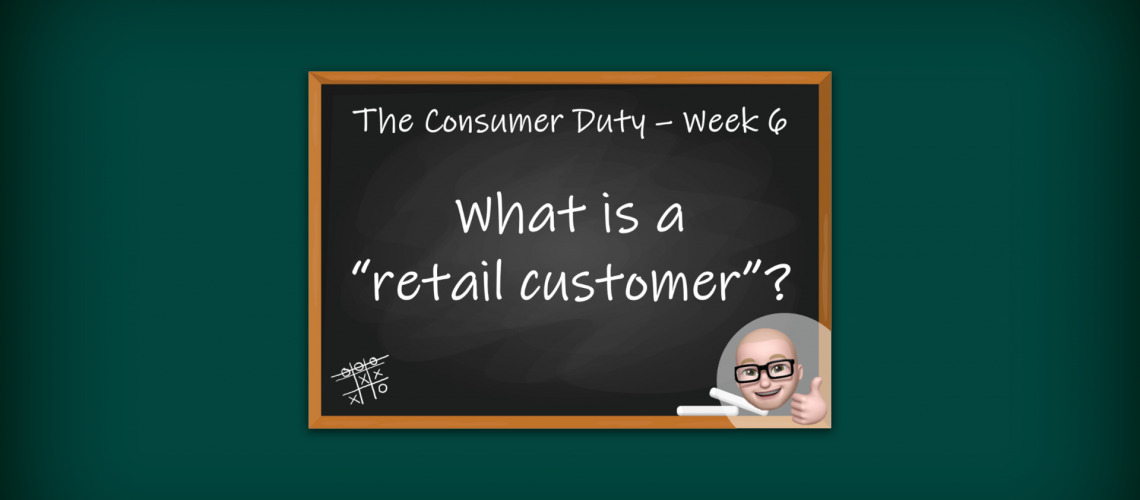The Consumer Duty applies to products and services offered to “retail customers”.
What EXACTLY do we mean when we refer to a “retail customer”?
Actual and Prospective customers
The concept of a “retail customer” includes prospective customers[1] as well as actual customers, for example:
- when approving or communicating a financial promotion,
- when answering a question from a prospective customer, or
- where a prospective customer applies for a product or service.[2]
In some instances, a “retail customer” may also include individuals who are declined a product or service.[3]
Individual and collective customers
The concept of a “retail customer” is also capable of operating on both a collective and an individual level. For example, firms should consider the needs of their customers collectively (i.e. their target market) when designing a product, considering price and value, or developing its communications or customer service approach.[4] In contrast, when communicating with an individual customer (rather than communicating with multiple customers), firms should pay regard to the needs and characteristics of that particular customer.[5]

Specific inclusions and exclusions
More specifically, the definition of “retail customer” also means that:
- for consumer credit, the Consumer Duty applies to all regulated credit-related activities,
- for deposit-taking activities, the Consumer Duty applies to consumers, micro-enterprises, charities with a turnover of less than £1 million and a natural person acting in a capacity as a trustee if acting for purposes outside their trade, business or profession (in line with the ‘banking customer’ test in the Banking Conduct of Business Sourcebook (BCOBS)),
- for payment service or e-money providers, the Consumer Duty applies to business conducted with consumers, micro-enterprises and small charities (where the definitions of these terms are the same as for deposit takers, as noted above).[6]
- for investments, the Consumer Duty applies to business conducted with a customer who is not a professional client, as set out in the Conduct of Business Sourcebook (COBS),
- for mortgages, the Consumer Duty applies to all regulated mortgage contracts within the perimeter but not, for example, unregulated buy-to-let contracts or commercial lending. Where the owner of a mortgage book is unregulated and the regulated party is an administrator, the Duty would apply in an appropriate and proportionate manner to the administrator’s function, and
- for insurance, the Consumer Duty DOES NOT apply to reinsurance, contracts of large risk sold to commercial customers or other contracts of large risk where the risk is located outside the UK. Nor does it apply to activities connected to the distribution of group insurance policies or the extension of these policies to new members.
Next time
Next time, we will turn to consider the concept of “reasonableness” within the context of the Consumer Duty, so stay tuned!
[1] PRIN 2A.1.5G
[2] FC22/5, 2.5
[3] FG22/5, 2.6
[4] FG22/5, 2.8
[5] FG22/5, 2.9
[6] FG22/5, 2.3

